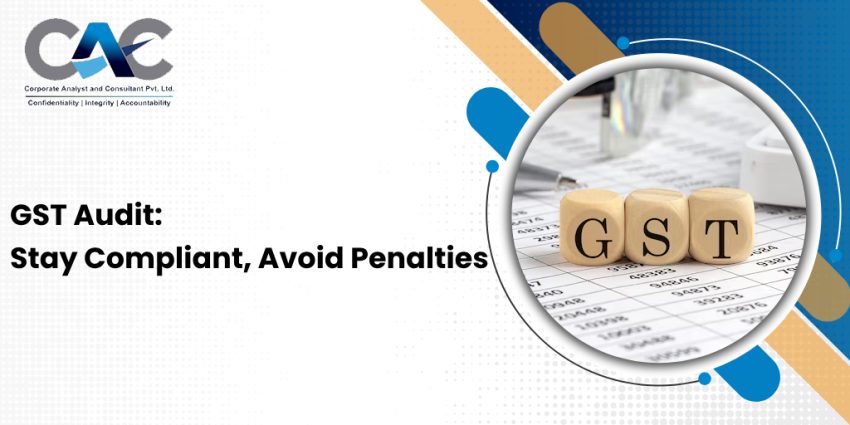Since the introduction of Goods and Services Tax (GST) in India, compliance has become an essential responsibility for businesses of all sizes. While filing returns and paying taxes on time are key aspects of compliance, audits form another crucial part. Many business owners and students often ask what is GST audit and why it is mandatory? Let’s break it down in simple terms.
What is GST Audit?
In simple terms, GST audit is the procedure of scrutinizing and verifying records, returns and other documents kept by a business under GST legislation. It is carried out to align the information represented in GST returns with the company financial records.
When you inquire what the GST audit is, the answer is that it is a check of whether a business has reported its turnover correctly, paid tax, claimed input tax credit and kept the GST rules in the right path.
Who Needs a GST Audit?
According to the law of GST, companies whose turnover exceeds the stipulated amount must hire a GST audit. Previously the threshold was fixed at 2 crores but has changed over the years according to government notifications. The audit is applicable to companies, partnership firms, LLPs and even on proprietorships in case they exceed the turnover limit.
Why is GST Audit Mandatory?
The main reasons why GST audit is mandatory include:
- Ensures Transparency– GST audit provides a sense of transparency, where businesses are candid about their tax amounts and they do not under declare revenue.
- Detects Errors and Omissions– Even accidental mistakes in GST returns may be subject to fines. Audits will also spot these and rectify them before they come up as a source of a legal problem.
- Checks Input Tax Credit (ITC) Claims– it is common in businesses to make mistakes when claiming ITC. GST audit ensures that only the eligible credits are taken.
- Strengthens Compliance– Frequent audits make businesses have the right paperwork and this instills confidence in the tax authorities.
- Prevents Tax Evasion– Obligatory audits serve as an anti-fraud measure and as a mechanism to stop leakage of revenues to the government.
Process of a GST Audit
The GST audit process generally involves:
- Examination of books of accounts and records.
- Verification of GST returns (GSTR-1, GSTR-3B, and others).
- Checking invoices, ITC claims, and outward supplies.
- Comparison of turnover reported in GST returns with financial statements.
After the audit, an auditor prepares a report highlighting mismatches, if any, along with recommendations for corrective action.
Example for Better Understanding
Assume that a firm has disclosed 3 crores in its GST returns but has disclosed 3.2 crore in its audited financial statements. This disparity may be an indication of underreporting. Such anomalies can also be identified through a GST audit and rectified before they degenerate into fines.
Conclusion
It is important to know the meaning of GST audit to business students and financial students alike. It is not only a legal obligation but also an instrument which brings accuracy, transparency and accountability to the taxation system. GST audits are mandatory, which implies the attention given by the government to compliance and fairness. Following due record keeping and regular auditing, firms will have an opportunity to evade punishment, earn trust and ensure smooth operations in the GST system.
Also Read: GST Audit Compliance: A Complete Guide for Businesses
















